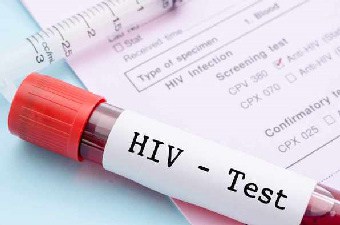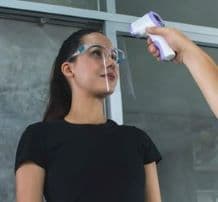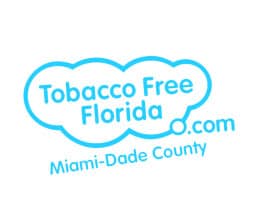The Health Dangers of Pests at Home


Pests, particularly blood-feeding insects like mosquitoes, can be dangerous to your health. Vector-borne diseases (VBD), or infections transmitted to humans by blood-feeding arthropods, account for over 17 percent of all infectious diseases, causing more than 700,000 deaths every year.
Parents must be aware of the dangers of these pests to protect their family members, especially their kids. This short guide underscores the importance of preventing pest infestations to reduce the health risks these pests can bring into your home.
The Health Dangers of Pests
Pests are unwanted intruders for multiple crucial reasons. They make people uncomfortable, cause property damage, and pose a threat to our health. They contaminate surfaces in our homes and spread diseases, some of which can be fatal.
People with weak immune systems may suffer severe allergic reactions to these unwanted guests. Pests can also worsen the symptoms of pre-existing health conditions. Knowing the health risks of pests can help families take precautions and prevent infestations in their homes.
Disease
Pests contribute to health problems by spreading diseases. Their urine, fecal droppings, and shedding of skin or fur can carry diseases that can spread to humans.
VBD remains a pertinent public health concern, contributing to 700,000 deaths every year. Examples of these diseases include the following:
- Malaria
- Dengue
- Japanese encephalitis
- Onchocerciasis
- Schistosomiasis
- Human African trypanosomiasis
- Chagas disease
- Yellow fever
- Leishmaniasis
These diseases can be found in tropical and subtropical regions, affecting economically disadvantaged areas. Since 2014, the world has witnessed significant outbreaks of diseases like dengue, chikungunya, malaria, yellow fever, and Zika.
The event is causing significant human suffering, loss of lives, and overwhelming strain on healthcare systems globally. Moreover, chronic ailments like leishmaniasis, chikungunya, and lymphatic filariasis are leading to long-term suffering, persistent morbidity, disability, and occasional social stigmatization.
The spread of VBD depends on a complex interplay of demographic, social, and environmental factors. International travel and trade, unplanned urbanization, and economic development contribute to the dynamics influencing the spread and impact of these diseases.
Impact on pre-existing health issues
Pests can also worsen the different symptoms of pre-existing health conditions. For instance, people with asthma can be significantly affected by cockroaches, which breed at an alarming rate. Once a single cockroach gets in your home, it will not be long until you have a serious infestation.
These insects regularly shed their skin and leave droppings that break down and turn into airborne particles. As they increase, the airborne particles can aggravate people with breathing conditions like asthma. In some instances, cockroaches can cause asthma in young kids if there is a history of asthma in the family or sustained exposure.
Mental health
It is not often a topic that is always spoken about, but pests, even tiny bed bugs, can have adverse effects on mental health. Due to bed bugs, some people suffer from anxiety and insomnia even after treating the infestation.
Moreover, the stress from discovering a pest infestation and the extensive work required to remedy the problem can be taxing. People with phobias of particular pests, like cockroaches, may suffer from a form of post-traumatic stress disorder (PTSD) when encountering pests in their homes.
A phobia is not only about fear of a situation or an object. It is a form of psychological disorder that can lead to malfunction and disorientation. The disorder can make pests seem more threatening and deadly, making the person feel like the world is ending by just thinking about them.
Allergic reactions
Today, there are a lot of people allergic to pests, and being close to them can trigger mild to severe reactions. However, individuals are most likely to experience an allergic reaction if a pest bites or stings them.
For example, bed bugs do not pass diseases to humans, but they can trigger an allergic reaction by biting and feeding on blood. The bitten person may break out in a rash, and scratching the affected area may lead to infection.
Anaphylaxis, a life-threatening allergic reaction, can cause fatal symptoms that require immediate medical attention. Without treatment, it may cause death. Symptoms usually affect multiple organ systems, such as the lungs, skin or mouth, the heart, and the gut. Some symptoms include the following:
- Swelling of the tongue, lips, or throat
- Skin itching, rashes, or hives
- Shortness of breath, wheezing, or any breathing difficulty
- Fainting or dizziness
- Vomiting, stomach pain, bloating, or diarrhea
- Sense of dread or feeling like something terrible is about to happen
Insect bites can also trigger non-allergic reactions, such as a toxic reaction that occurs when the body treats insect venom like poison. Serum sickness can also occur after an insect bite. This disorder is an unusual reaction to a foreign component in the body that can cause symptoms that linger for hours or days after the sting.
While there are various causes of allergies and asthma, it is crucial to identify and reduce exposure to the specific triggers. This way, asthma patients can take an active role in reducing, managing, and controlling the frequency and severity of their reactions.
Eliminate the Risk of Disease Through Prevention
Pest infestations can have fatal consequences for a person’s health, ranging from allergic reactions and mental health impacts to the transmission of diseases. These risks underscore the significance of maintaining proper pest control practices at home.
Below are simple tips to help you adopt good hygiene habits. After reading, you can easily create environments that are comfortable, safe, and free from the health risks brought by pests.
- Remember to maintain cleanliness. Regular cleaning can serve as the first line of defense against pests at home, so ensure all areas are free of stale water, food crumbs, and clutter. The mess can attract pests, so clean your house regularly.
- Store food properly. Keeping food in airtight containers can deny pests access to your snacks. This method is essential for food items like grains, pet food, and cereals.
- Dispose of trash regularly. Remember that pests are attracted to garbage, so you must dispose of waste in sealed bins and take them out of your home regularly.
- Seal possible entry points. Check your home for gaps, cracks, and other openings that pests can use. After inspection, seal these entry points to prevent easy access.
- Work with professional pest control service providers. Trying to keep your property pest-free by yourself may not be enough to deter pests from coming in and invading your home. If you want effective and long-term pest control, hire professionals to do the job.
- Inspect your property regularly. Regular inspection for signs of pests, such as chewed wires, droppings, and nests, can help you detect any infestation early and prevent it from worsening.
Protect Your Home From Harmful Pests
Even for healthy individuals with no allergies or pre-existing medical conditions, pest infestation can cause dangerous health problems. Exposure to pests may result in the development of new allergies, worsen existing reactions, or lead to the contraction of fatal diseases. The longer you ignore the issue of pest infestation, the worse your health may be impacted.
Different pests bring diseases and contaminants that may be tough to avoid or eliminate. While you may not always prevent the infestation from occurring, taking precautions after seeing the first signs of the issue can reduce the adverse effects on your health.
To protect your home from pests, consult with a qualified pest control professional to examine your property. With the proper care and prevention plan, you can keep yourself and your family safe from the dangerous health risks brought by pests.





